Dear Friends:
If Senator John McCain were alive today, he would be fighting relentlessly for democracy, justice, and human rights around the world. That’s why in 2023, we led our Ukraine Business Alliance executives to Ukraine to support our ally. We graduated 28 McCain Global Leaders committed to defending democracy and convened our 10th Sedona Forum. We held our first in-person global summit at Windsor Castle to help bolster human trafficking prosecutions, advocated for political prisoners like Vladimir Kara-Murza, and provided assistance to human rights fighters all over the world. Please see all of our latest accomplishments below in our Impact Report.
While we’ve made significant strides, the challenges facing our world seem to be growing. We begin 2024 with a sense of urgency as global elections, geostrategic turmoil, threats to human rights, hunger, and instability loom.
With these challenges in mind, here are specific areas of focus for the McCain Institute in 2024:
1) Advance American Leadership on Democracy and Human Rights: We will continue to make the case to policymakers that in an increasingly unstable world, American leadership supporting democracy and human rights is needed now more than ever. Far from being a distraction, advancing individual rights and freedom is an important part of making America more secure and prosperous and making a world that is free, safe, and just for all.
2) Protect Human Rights and Freedoms: This year, the McCain Institute will launch a Human Rights & Freedom program, broadening the scope of our work combatting human trafficking to tackle a wider range of abuses of individual rights and freedoms. At a time when human rights violators continue acting with impunity and autocratic regimes brutally oppress their people, we will carry forward Senator McCain’s legacy of fighting for accountability and against repression.
3) Stand With Ukraine: As Ukrainians face the beginning of their third year of war – and the devastation, loss, and exhaustion it brings – the McCain Institute will continue to support those who courageously fight for Ukraine’s sovereignty and advocate for continued U.S. funding for Ukraine for as long as it takes to defeat Russia’s unjustified and illegal invasion.
4) Invest in Tomorrow’s Leaders: To overcome the innumerable threats to democracy and human rights around the world, we must invest and empower younger generations of leaders. These leaders are on the frontlines of hotspots from Taiwan to Ukraine to Venezuela to Sudan. The McCain Institute is proud to support an alumni network of over 115 McCain Global Leaders (and growing!) from more than 75 countries as they serve causes greater than themselves to help win the fight against authoritarianism and extremism.
5) Support Electoral Processes and Uphold American Democratic Norms: As our country enters a critical election year, the McCain Institute continues to directly confront threats to our democracy including misinformation attacks, threats to election officials, the loss of local journalism, and much more through our defeating disinformation task force and our American democracy dialogues.
We appreciate your continued support and engagement as we carry on the values of the late Senator McCain and fight for democracy, human dignity, and security. We will never stop working to achieve this mission.
Thank you for joining us in this important cause.
Sincerely,
Evelyn N. Farkas
Executive Director
McCain Institute at Arizona State University
There was no other U.S. statesman who advocated for Ukraine more than Senator John McCain. In 2014, as Russia began its takeover of Crimea, Senator McCain declared, “We are all Ukrainians,” as he urged America and the world to oppose Vladimir Putin’s theft of land from a sovereign Ukraine. Senator McCain believed a free and democratic Ukraine would be a bulwark against Putin’s authoritarian regime in Russia and something that emerging states around the world could aspire to. As a senator, he rallied with protesting Ukrainians in Kyiv and constantly pressed his colleagues in Washington to support the Ukrainian people against Russian aggression economically and militarily. With Ukraine still under attack by Vladimir Putin and Russia – we are driven by Senator McCain’s desire for freedom and democracy to support Ukrainians in defense of their homeland. The people of Ukraine are standing up for a cause greater than themselves – the cause of freedom, epitomizing what it means to defend democracy.
Vladimir Putin wants to restore the old Russian empire. He cannot stand a free, democratic, prosperous Ukraine, because sooner or later, the people of Russia would want to have that kind of lifestyle as well.
Senator John McCain, 2014 Tweet
The McCain Institute led a business delegation of executives and policy leaders on a trip to Kyiv and Lviv for meetings with senior Ukrainian officials, thought leaders, and NGO leaders. McCain Institute Executive Director Dr. Evelyn N. Farkas was joined on the trip by technology and defense executives from the McCain Institute’s Ukraine Business Alliance, including Palantir Technologies, Microsoft, Skydio, and Fortem Technologies. The purpose of the visit was to further understand how the American private sector can support Ukraine’s war effort, hold Russian war criminals accountable, and assist in reconstruction.
During the weeklong trip, Dr. Farkas led the group in meeting with current government leaders, former ministers, members of the parliament, members of civil society, and the media, including Prime Minister of Ukraine Denys Shmyhal, U.S. Ambassador to Ukraine Bridget A. Brink, and Prosecutor General of Ukraine Andriy Kostin. Dr. Farkas also spoke with American University Kyiv about global democracy.
If Senator John McCain were here today, he would be a constant presence in Kyiv and elsewhere in Ukraine, urging the U.S. government and business community to continue their supporting efforts and letting the Ukrainians know that America stands with them. That is why this trip is so important. It is imperative that we remain steadfast in backing Ukraine’s determination to defeat Vladimir Putin and stop the spread of tyranny.
McCain Institute Executive Director Dr. Evelyn N. Farkas
Following the trip, the business delegation issued six policy recommendations regarding private-sector support for Ukraine:
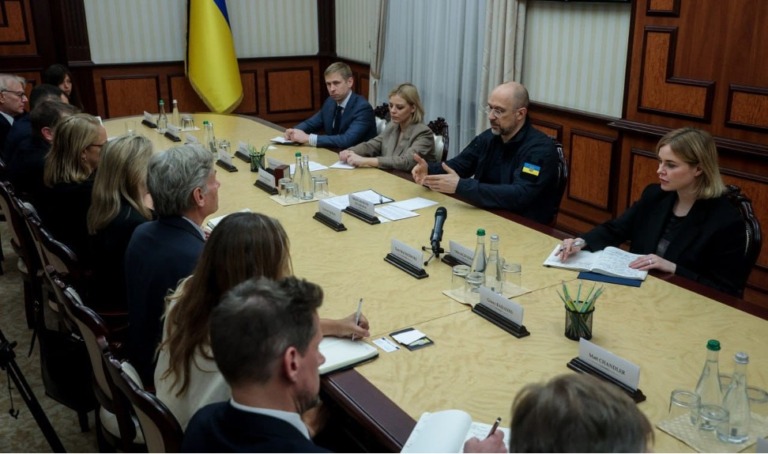
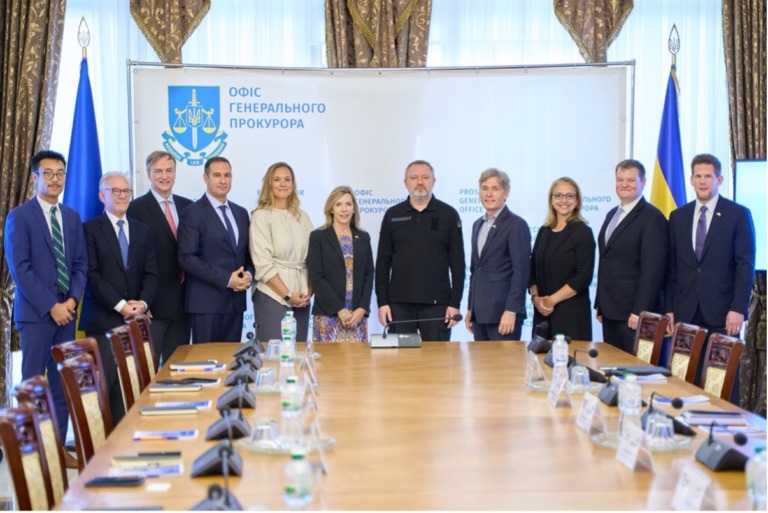
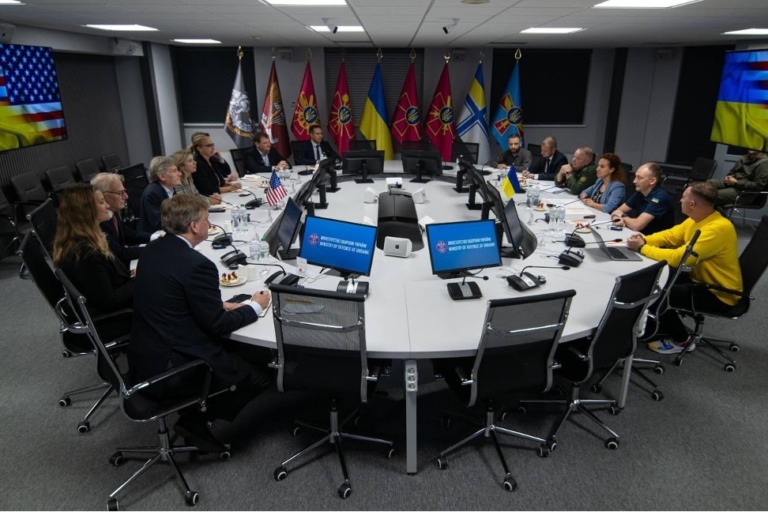
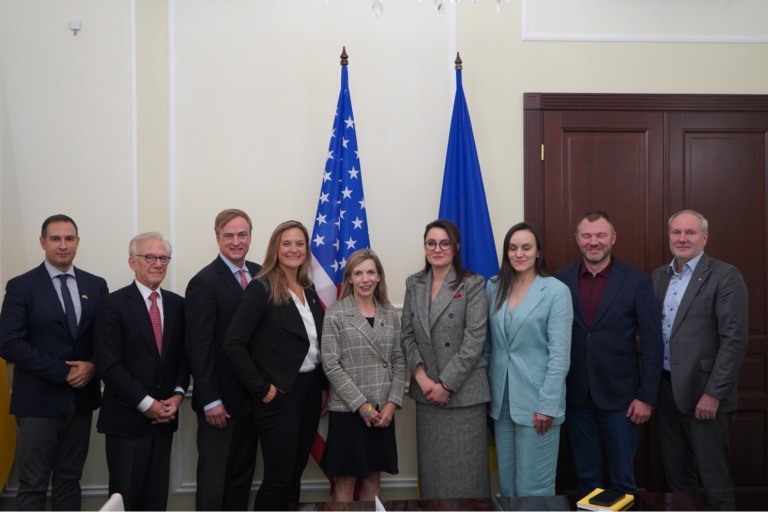
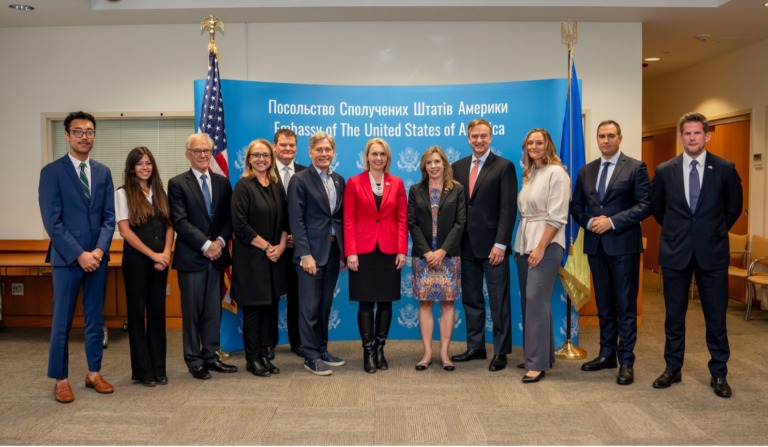
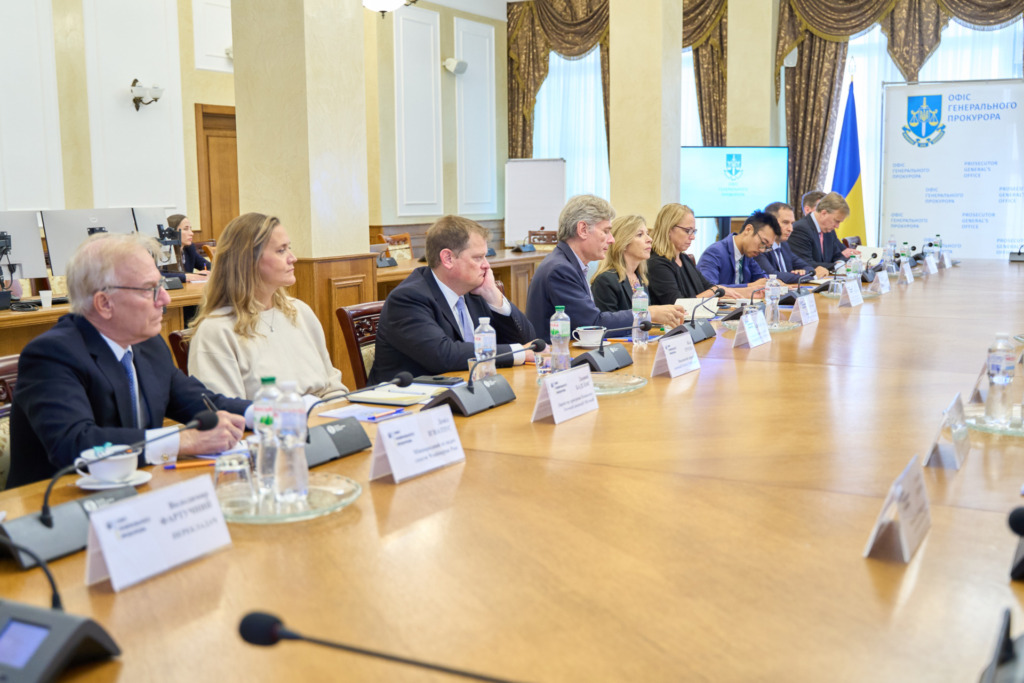
The McCain Institute’s support for Ukraine through its Ukraine Business Alliance (UBA) is featured in a recent column by The Washington Post’s Columnist David Ignatius. McCain Institute Executive Director Dr. Evelyn Farkas and 2022 McCain Global Leader Col. Hennadiy Kovalenko, as well as members of the UBA, are quoted in the opinion piece from the recent UBA trip to Kyiv and Lviv in which Ignatius accompanied the business delegation.
The group met with senior Ukrainian officials, thought leaders, and NGOs. The trip included members of the McCain Institute’s UBA, which convenes senior executives from American and European technology and defense companies, U.S. and Ukrainian government and military leaders, and foreign policy experts to strategize innovative public-private partnerships to support Ukraine.
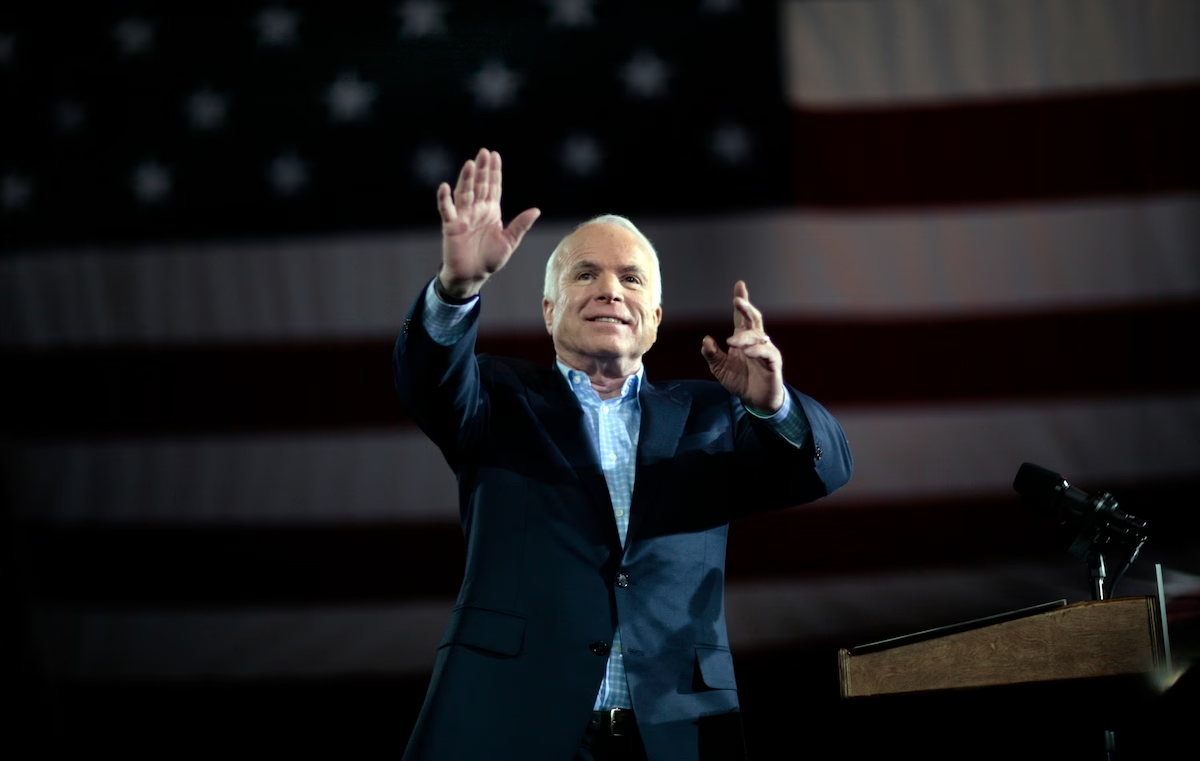
The McCain Institute’s work to uphold Senator McCain’s values is the subject of a recent column by The Washington Post’s Congressional Bureau Chief Paul Kane. McCain Institute Executive Director Dr. Evelyn Farkas and Board Chairman Rick Davis were both interviewed by Kane for the column, which follows the five-year anniversary of Senator McCain’s passing and what would have been his 87th birthday.
“It [the McCain Institute] promotes his views on defending democracy and human rights around the world. One of the institute’s central roles now is building outside coalitions to shore up political support for defending Ukraine against the Russian invasion,” Kane writes.
“John McCain would be in Ukraine,” Farkas says. “He would be manning the barricades.”
The McCain Institute Ukraine Business Alliance (UBA) convenes executives from leading American and international technology and defense companies with senior members of the Ukrainian government, U.S. government and military officials, and experts to strategize innovative public-private partnerships to support Ukraine. The Ukraine Business Alliance meets regularly throughout the year to encourage cross-collaboration to support Ukraine’s goals. In 2023, the UBA held dinners bringing together U.S. government officials, including Secretary Penny Pritzker, Assistant Secretary Jessica Lewis, and Ambassador Beth Van Schaak, with Ukrainian officials, including Ambassador Oksana Markarova, Prosecutor General Andriy Kostin, and Minister Oleksandr Kamyshin. These officials had the opportunity to learn from US industry leaders on how to foster deeper relationships with the private sector, and develop a sustainable Ukrainian tech and defense industry.

As the war in Ukraine drags on, the Russian military has remodeled its strategy to mirror aspects of its approach in Syria. Russia’s whole-of-society approaches have resulted in numerous war crimes including massive civilian casualties and displacement, the complete destruction of Ukrainian homes and livelihoods, and countless human rights abuses. Likewise, in Syria, Russia aided the Assad regime by employing this tactic in Syrian rebel-controlled areas with similar effects on the civilian population.
In both Ukraine and Syria, Russia has also deployed the non-state military Wagner Group to maintain key infrastructure and administer Russia-occupied areas. In particular, the group’s administration of occupied areas has led to a myriad of war crimes committed against Ukrainian and Syrian women and girls.
The McCain Institute and Our Secure Future at the One Earth Foundation hosted the event “Women, Wagner, and War Crimes.” Panelists included Oleksandra Matviichuk, head of the Center for Civil Liberties for Ukraine and a Nobel Peace Prize recipient; Dr. Evelyn Farkas, executive director of the McCain Institute; Nada Al Rashed, volunteer and board member of the White Helmets; and moderator Sahana Dharmapuri, director of Our Secure Future, One Earth Future Foundation. They discussed lessons from Syria that can be applied to the Russian war with Ukraine and the important role women play in helping those affected by the war.
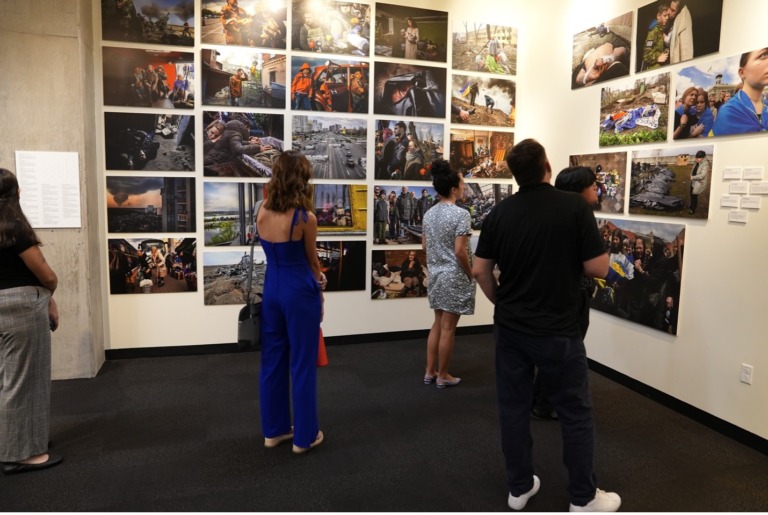
In partnership with Arizona State University’s Walter Cronkite School of Journalism and Mass Communication, the McCain Institute hosted the opening of the photography exhibit “Relentless Courage: Ukraine and the World at War” on the ASU Downtown Phoenix campus. The exhibit features a series of powerful images and essays from Pulitzer Prize-winning photojournalists on the front lines of the war in Ukraine, with contributions from the Ukrainian Ambassador to the United States Oksana Markarova, who provided video remarks at the event.
The event featured a panel titled, “Only One Way Forward: The Vitality of a Democratic Ukraine,” where experts made the case for continued Western support for Ukraine and explained what is at stake in Ukraine, the human cost of war, and the important role of journalists in shaping public understanding of the conflict. Speakers included Dr. Evelyn Farkas, Dr. Mariia Levchenko, and Relentless Courage photographers Svet Jacqueline and Carol Guzy, moderated by Walter Cronkite School of Journalism Dean and Professor Dr. Battinto Batts.
The McCain Institute convened its 10th annual Sedona Forum on May 5-6, 2023, featuring lawmakers, journalists, military leaders, business executives, and more. The 2023 Sedona Forum theme, “Indispensable Power,” examined the diplomatic, military, and economic means employed to protect democracy, human rights, and the global competitive edge.
CBS News served as a broadcast media partner, and POLITICO served as a digital media partner.
from around the world
represented among speakers
Lorem ipsum dolor sit amet, consectetur adipiscing elit. Curabitur interdum nec ligula in dictum. Nunc aliquet ligula at mauris sollicitudin tincidunt. Aliquam eget felis ut tellus sagittis semper vel a elit. Mauris non gravida orci. Integer ut varius libero. Donec congue imperdiet dignissim. Nam feugiat lectus hendrerit turpis sagittis, vel fermentum ex sodales.
In partnership with the Anti-Defamation League and the Institute for Strategic Dialogue, we are building a national network of interdisciplinary professionals dedicated to addressing targeted violence and terrorism, and its impacts, within the United States. This network is both increasing the efficacy of local prevention frameworks and programs and expanding referrals to qualified programs throughout the country.
In a joint effort with the Center for American Progress, we conducted interviews, round table discussions, surveys and research to inform a comprehensive national policy blueprint, designed to serve as a starting point for a whole-of-government response. This blueprint focuses areas of broad consensus, providing dozens of recommendations that Congress, the Biden Administration, and partners at the state and local level can pursue to counter white supremacist violence.
Expanding on the Peer-to-Peer initiative, we partnered with EdVenture Partners and Credence Management Solutions to challenge university students to develop their own dynamic products, tools, or initiatives to prevent targeted violence and terrorism. University teams compete for cash awards, education scholarships, and optional entry into a one-year sustainment program.
There has never been a more important time to advocate for democracy, in the United States and around the world. Our program continues to bring democracy and human rights to the forefront of conversations in Washington, D.C., and protect activists around the world.
The Democracy Program at the McCain Institute stands firmly committed to protecting freedom, democracy, and the inherent rights of all individuals. Echoing this commitment, the Human Rights Defenders Program offers crucial transitional support to those advocates who face the perilous choice of fleeing their homes or continuing their vital work amidst risks due to harassment or threats of violence. This program serves as a lifeline for dedicated and courageous activists around the world. To date, the Human Rights Defenders Program has supported nearly 100 advocates from 42 countries, consistently aiding Russian and Ukrainian activists who are passionately engaged in the pursuit of accountability and justice.
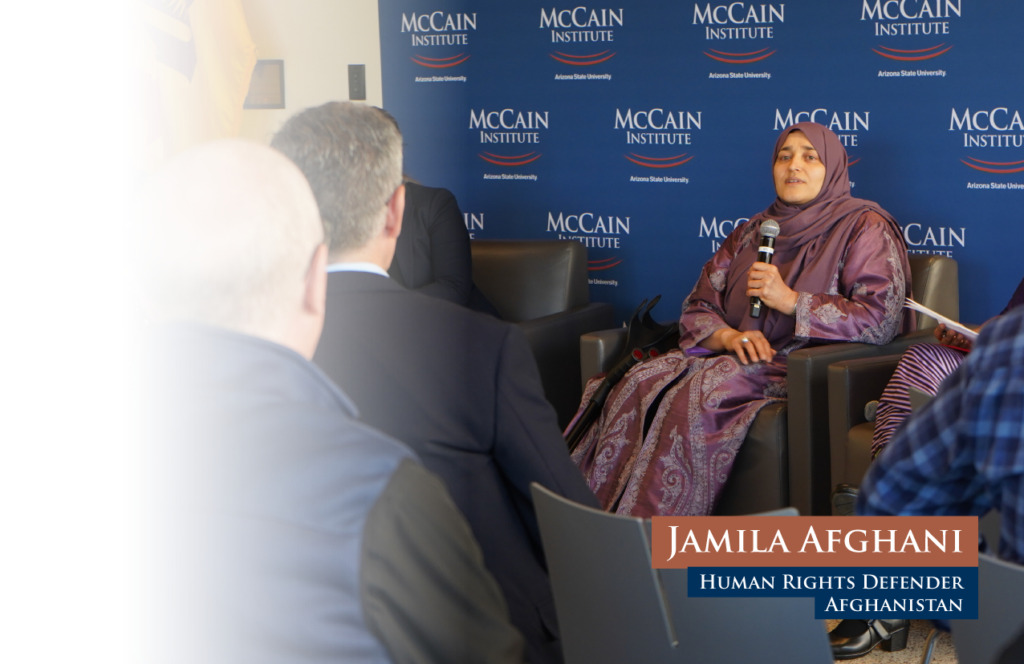


Truth Hounds received 30k from the McCain Alumni Club in 2022 for this organization’s work.
Executive Director, Truth Hounds
Roman Avramenko, who leads the Ukrainian organization Truth Hounds, discusses his organization’s work documenting war crimes perpetrated by Russians. Our support directly impacted their ability to continue that work, which is so critical to seeking accountability. In 2023, Truth Hounds was awarded the Clooney Foundation for Justice’s Albie Award, “honoring those whose work and organizations are under threat.”
Human rights lawyer Nicholas Opiyo, and advocates like him around the world, need moral and financial support to keep fighting for human rights and democracy. Without it, Nicholas could still be languishing in jail. Instead, he continues his work defending Ugandans fighting for a more just and equitable society. He was recently honored by the National Endowment for Democracy, accepting the Democracy Award on behalf of those imprisoned or killed in 2023.
In May 2023, the McCain Institute led a transatlantic delegation to Sweden and Finland, led by former U.S. Secretary of Defense and John S. McCain Distinguished Fellow Dr. Mark T. Esper and McCain Institute Executive Director Dr. Evelyn Farkas. The delegation held meetings with senior government officials – including the President of Finland Sauli Niinistö, and the ministers of foreign affairs, ministers of defense, and U.S. ambassadors of both countries – to show support for both countries’ NATO accession processes. In Sweden, the delegation advised on ways to accelerate their NATO application process. In Finland, the delegation focused its meetings on NATO readiness and military interoperability with the rest of the alliance. The delegation also met with members of civil society and academia, participating in roundtables hosted by prominent think tanks in both countries. Following the trip, Sweden’s NATO application was accepted at the 2023 NATO summit in Vilnius, as called for in a Wall Street Journal op-ed published by Drs. Esper and Farkas. The delegation also raised the McCain Institute’s profile in both countries and continued its line of work supporting the NATO alliance. Continued engagement with Sweden, Finland, and the alliance will build on the relationships formed on this trip.
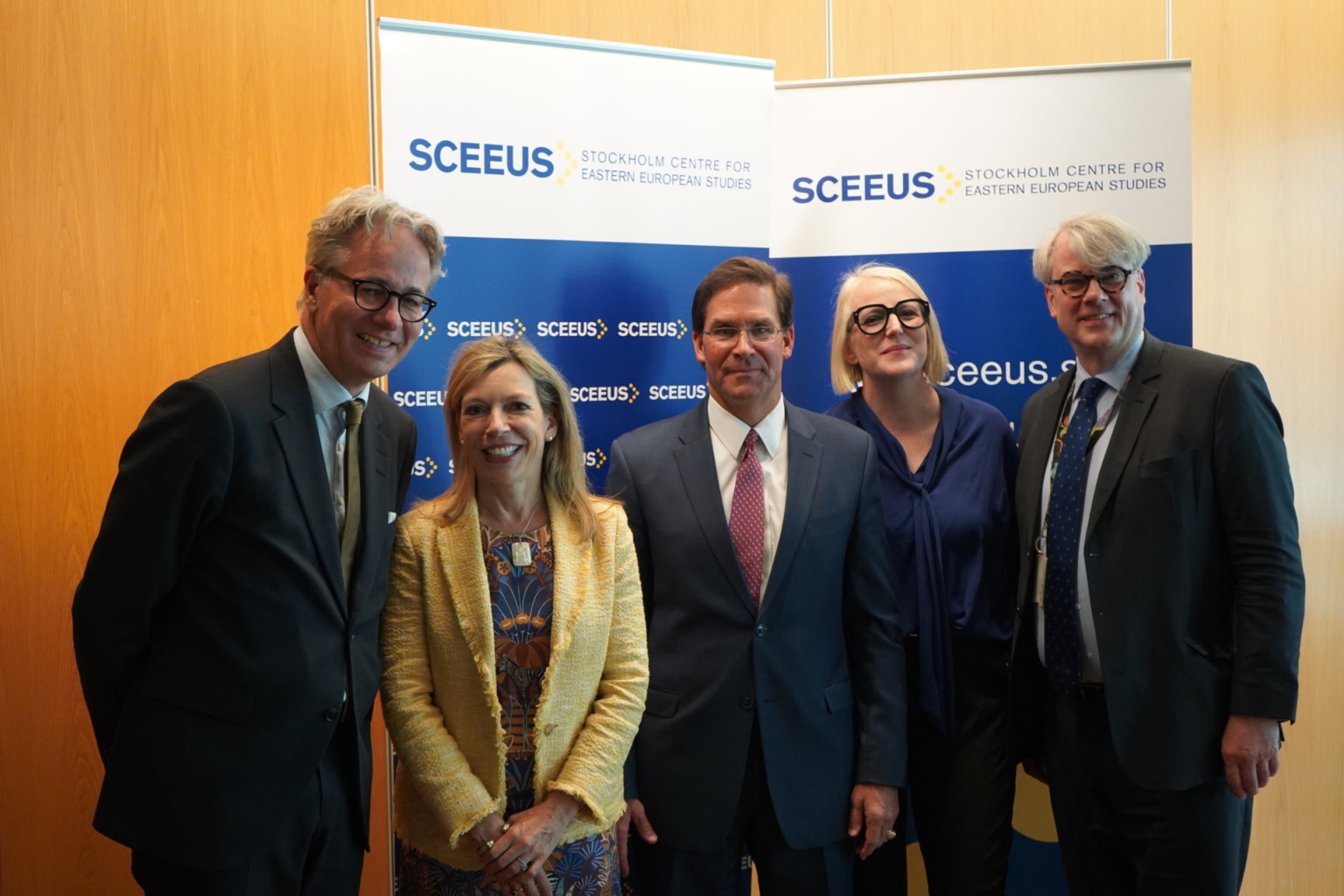
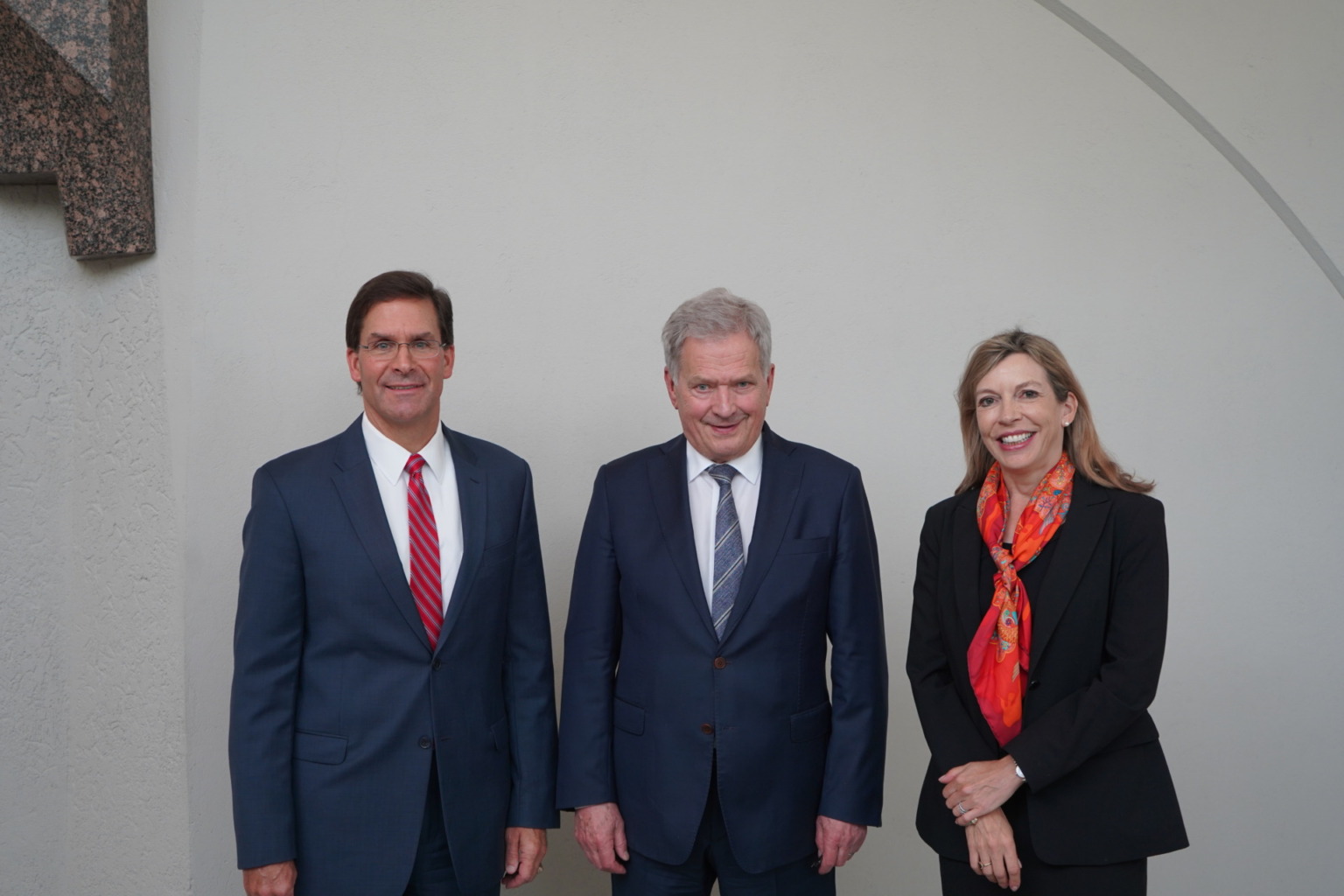
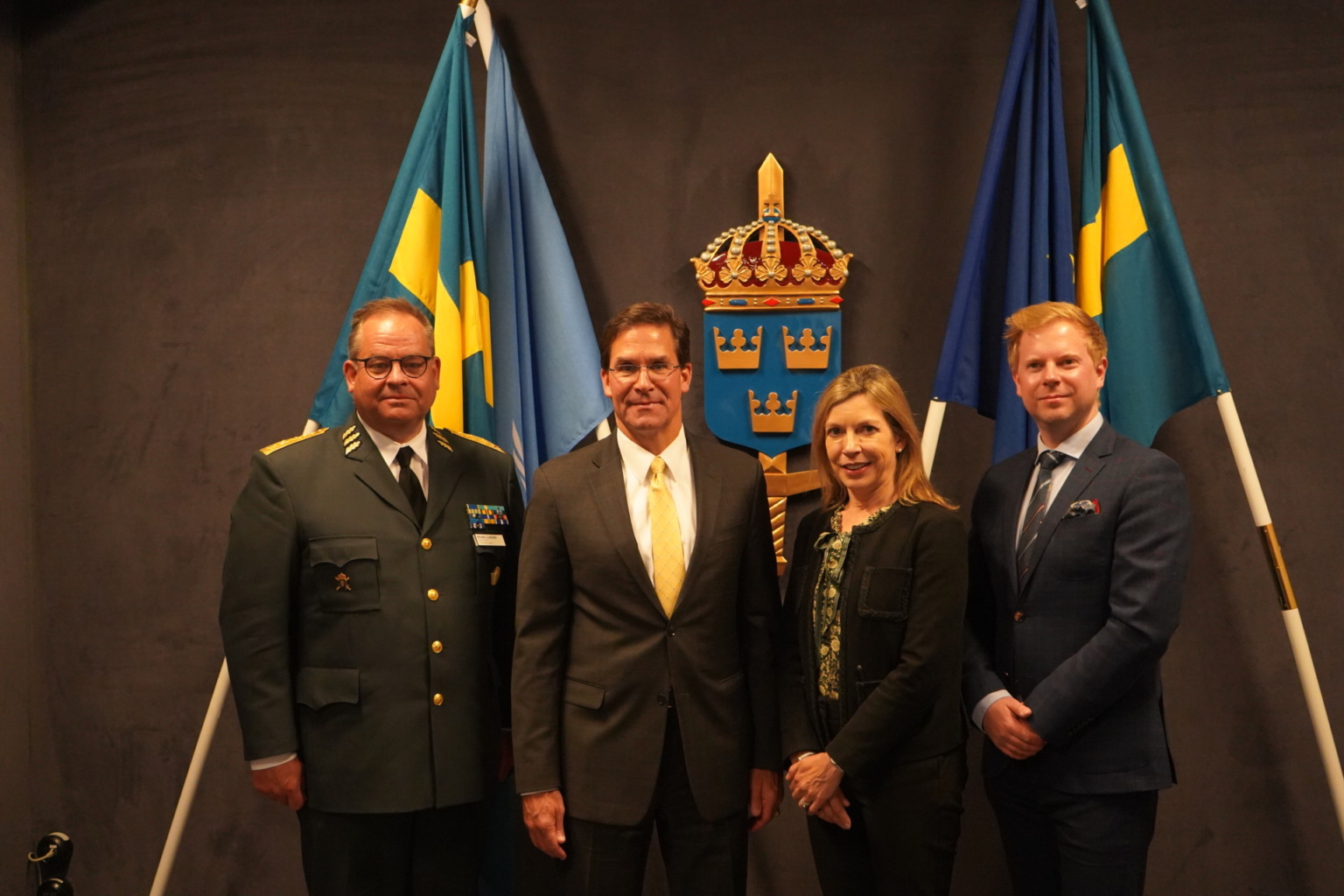
Committed to continuing Senator McCain’s legacy of character-driven leadership, the McCain Institute empowers individuals around the world to educate others in the McCain Institute’s leadership curriculum.

The McCain Global Leaders program supports character-driven leaders from around the world who embody Senator John McCain’s legacy of serving a cause greater than oneself. Structured as a 12-month fellowship, the program features a diverse group of leaders from around the world who are working “in the arena” to advance democracy, human rights, and freedom.
Over the span of four weeks virtually, and one week in-person at the United States Naval Academy, the leaders participated in a curriculum focused on character-driven leadership. The curriculum allowed leaders to engage each other directly as well as parallel their own leadership journey with that of Senator John McCain.
The 2023 cohort of the McCain Global Leaders began in-person programming at the United States Naval Academy in Annapolis, Md., and Washington, D.C. The leaders met with well-respected thought leaders and practitioners in the field of defending democracy, including Admiral Harry Harris, U.S. Senator Sheldon Whitehouse, the National Security Council, Van Jones, Congressman Denver Riggleman, and Ukrainian Ambassador Oksana Markarova. The Leadership Experience also included experiential learning sessions that included visits to the White House Press Briefing Room, Library of Congress, Mount Vernon, and the U.S. Capitol.
Each regional cohort of McCain Global Leaders participated in a week-long study tour in a host country, focusing on the 2023 global theme of Defending Democracy.

Leaders from Asia and Oceania gathered in Taipei to learn from the Taiwanese example and history of democracy. The leaders met with the Ministry of Foreign Affairs, a member of Parliament, and various NGOs focused on defending democracy. They also engaged in cultural learning sessions at Longshan Temple and Chiang Kai-Shek Memorial and participated in hands-on service at Harmony Home Taiwan, a center for children living with HIV/AIDS.

Leaders from Europe and Eurasia gathered in Poland to focus on the defense of democracy and the invasion of Ukraine. The leaders met with the Community of Democracies, the International Republican Institute, and numerous civil society organizations. The leaders also engaged in cultural learning sessions at the Warsaw Rising Museum, the Polish Sejm, and Auschwitz-Birkenau.

Leaders from Africa and MENA gathered in Johannesburg, South Africa to learn from the history of apartheid and the subsequent reconciliation process. The leaders met with well-respected thought leaders and organizations in the field of defending democracy, including the International Republican Institute, an African National Congress member, a June 16 activist, Nelson Mandela’s grandson Bambatha, and Hector Pieterson’s sister Antoinette Sithole. They also toured historical locations and museums that told the story of apartheid, such as Constitutional Hill.

The 2023 cohort of the McCain Global Leaders concluded their program in a country of significance to Senator McCain’s own leadership journey: Vietnam. The Leaders reflected on their experiences during the program, shared how their own leadership philosophies have evolved, and continued to explore professional connections. The leaders visited Da Nang and Hanoi, where they participated in professional workshops, panels, and hands-on service opportunities. They visited Hoa Lò Prison where Senator John McCain spent parts of his five-and-a-half years as a prisoner of war after being shot down in 1967. The leaders were joined by two MGL alumni and three members of the Global Advisory Council during their eight days in Vietnam.
The McCain Global Leaders program embodies Senator John McCain’s legacy of serving a cause greater than oneself. The 2023 cohort participated in various service projects throughout their in-person programming. The Asia and Oceania cohort members participated in a hands-on service opportunity with Harmony Home Taiwan, a center for children living with HIV/AIDS. The Africa and MENA cohort members visited Kliptown Youth Program located in Soweto, one of the most impoverished neighborhoods in Johannesburg, and served with the center’s after-school program. The McCain Global Leaders also visited DAVA, The Da Nang Association for Victims of Agent Orange, and served at a local soup kitchen that provides meals to a women’s and children’s hospital during the 2023 Legacy Experience.
In September, the leaders began their participation in weekly virtual programming that focused on real-world skills building in areas such as management, fundraising, communications, and responding to global challenges. Guest speakers included David Axelrod, Nate Mook, David Kirk, Hannah Vaughan Jones, and Leon Toh. The leaders are also participating in peer coaching sessions, the foundation of lasting relationships within the cohort.
The McCain Institute is dedicated to creating impact from the many alumni who have participated in McCain Leadership Initiatives. In May, the alumni community joined Global Advisory Council member, Nate Mook for a session on “Telling Your Story,” which focused on how global leaders can effectively frame their work to diverse audiences and key stakeholders. In September, alumni from the Western Hemisphere joined the 2023 Concordia Summit on the sidelines of UNGA where they joined hundreds of leaders from around the world for the three-day summit.
The National Security & Counterterrorism Fellowship program brings together the brightest emerging leaders from the Five Eyes nations to build an enduring community of young national security professionals. In 2023, the third cohort of leaders convened for a week in Washington, D.C. to meet each other and learn from U.S. national security officials.
from four Five Eyes countries in the NSCT fellowship network
for the 2024 cohort
For its upcoming fourth cohort, the National Security & Counterterrorism Fellowship received a record 180 applicants. To date, we have interviewed 26 U.S. applicants and 30 international applicants. Most of these candidates heard about the fellowship through internal networks, colleagues, or supervisors, indicating how quickly word has spread about the experience. After seeing the success of the last three cohorts, certain government agencies across the Five Eyes have nominated candidates for the first time.





In July, we convened cohorts one and two for separate alumni calls. This not only allowed fellowship alumni to informally catch up, but it also provided the NSCT team with ideas about meaningful alumni programming. Our alumni are keen for opportunities to connect and learn together.
During the first week of September 2023, the fellows traveled to Australia for the second module of the year. During this module, fellows met with academics, civil society organizations, and former and current government officials, including three directors general of the Australian Security Intelligence Organisation, the Australian Secret Intelligence Service, and the Australian Office of National Intelligence. These conversations gave fellows insight into how senior national security leaders are approaching some of the biggest questions facing the Five Eyes Alliance. In the post-module survey, one fellow said:
“This week, like all other aspects of the Fellowship, provided a unique opportunity for government professionals from each country to be fully immersed in the highest national security priorities facing our alliance in a safe space removed from our jobs. The resulting impact on how we each understand these priorities and how to navigate them as leaders is massive.”
The 2023 National Security & Counterterrorism (NSCT) Fellowship cohort met in the United Kingdom for their third and final stop visiting the Five Eyes capitals to meet with government leaders and civil society experts in national security.
The fellows participated in meetings with government leaders and civil society experts in London, including Chloe Squires, director general of security at the Home Office, leaders and analysts at MI5 and MI6; Chris Rampling, director of national security at the Foreign, Commonwealth & Development Office; Paddy McGuinness, former deputy national security advisor, and Washington Post journalist Greg Miller. The group also traveled to Belfast for a day to tour the city and contextualize the security situation in Northern Ireland.
“I have formed distinct personal relationships with each member of the 2023 cohort,” said U.S. NSCT Fellow Mike Friel. “I am so fortunate to now have so many new friends and mentors in London, Canberra, and Wellington. The fellowship has added immeasurably to my network, and I look forward to interacting with members of my cohort as we each continue to grow as future leaders and people.”
U.S. NSCT Fellow Mike Friel
We protect and advance individual human rights and freedom around the world by working with American policymakers and other strategic partners to spur bold action to prevent violations from occurring and to hold perpetrators accountable.
Thought leaders and government policymakers must be better informed and engaged in a consistent fashion if we want to mobilize the U.S. government to lead on a global scale and devote additional resources to combatting human trafficking and forced labor. With this objective, the Human Rights & Freedom Program has identified additional resources to increase the amount of time it spends engaging with U.S. policymakers and government implementers, becoming a more regular presence in key administration offices and on Capitol Hill.
With generous new support from Humanity United Action, the Human Rights & Freedom Program is using research, expertise, and engagement with survivors to work directly with policymakers and their staff, candidates, and campaign committees. Together, they are building the knowledge base on forced labor and human trafficking offenses and cultivating champions.
In collaboration with the Outlaw Ocean Project, the McCain Institute recently launched an Ocean Atrocities Working Group to coordinate and engage in policy advocacy as it relates to the reporting by Ian Urbina on human rights and environmental concerns tied to the Chinese distant water fishing fleet. As part of this work, we are leveraging unique opportunities to draw attention to the issue and deepen stakeholder understanding by publishing op-eds in USA Today and Fast Company and bringing together policymakers, NGOs, advocates, journalists, and scholars to discuss sea slavery and other trafficking and criminal neglect issues including global food security, opacity in seafood supply chains, environmental degradation, Illegal, Unreported and Unregulated Fishing (IUU), and unfair competition.
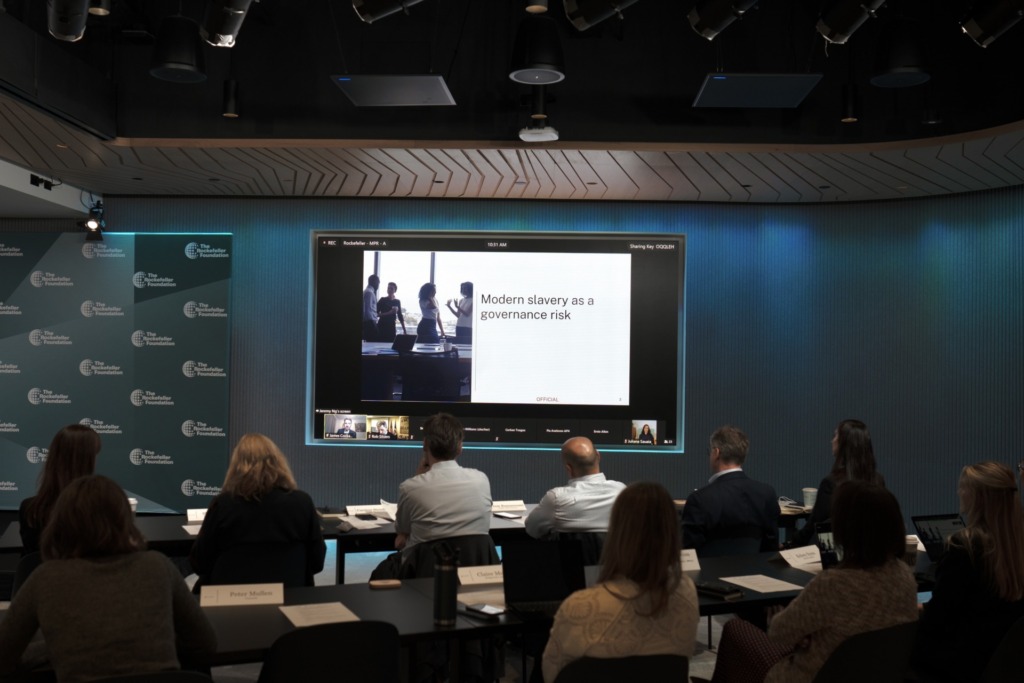
Growing out of the Rockefeller Foundation and Brookings Institution’s 17 Rooms Initiative in 2021, the Forced Labor Open Risk Estimation Tool (FLORET) is designed to improve institutional investors’ access to and use of reliable forced labor risk data. Brought together under the “Uncommon Collaborations” initiative through the Rockefeller Foundation, this multi-stakeholder collective has worked closely to design FLORET with supporting partners from Google, Dun & Bradstreet, and Bridgewater Associates, among others.
FLORET was developed to provide users with comparable, reliable data that offers information and insights about the exposure to forced labor at the company or investment level and aims to alleviate some of the issues investors and markets face in approaching forced labor risk comprehensively and effectively across thousands of firms, asset classes, and geographies.
In October, the McCain Institute and its partners hosted an action-oriented convening at the Rockefeller Foundation’s headquarters in New York City to demo an early prototype of FLORET and engage in a conversation about public-private action to address serious forced labor risks in global value chains. The FLORET team was honored to receive significant participation and support from key figures in government, civil society, tech, and finance.
In September 2022, President Biden stated that “domestic terrorism rooted in white supremacy is the greatest terrorist threat to our Homeland today.” The national crime statistics released in October 2023, reveal the growing threat and challenge facing the United States. Hate crimes and targeted violence are continuing to increase year after year.
The McCain Institute’s Preventing Targeted Violence program seeks to address these challenges through innovative and educational programming. Since its inception, the PTV program has facilitated 211 student innovation projects, developed the first-of-its-kind interdisciplinary Prevention Practitioners Network, and launched a national SCREEN Hate campaign to raise awareness of online hate.
“We have all seen the urgent need for national and international programs and resources to combat hate-based violence,” said McCain Institute Executive Director Dr. Evelyn Farkas. “We are proud of our Preventing Targeted Violence experts for the extraordinary accomplishments they have achieved in the last four years at the McCain Institute. Now, with the Eradicate Hate Global Summit, they are poised to accelerate their work’s impact even more with the potential to save lives.”
have participated in Invent2Prevent competitions
and tools created to address acts of targeted violence, hate, or terrorism through Invent2Prevent
of the SCREEN Hate website in its first year
committed to preventing hate-fueled violence as members of the Prevention Practitioners Network
I2P has grown into a leading incubator for innovative prevention approaches and an important mentor for the next generation of leaders in prevention. Since the I2P Program’s launch in the United States in spring 2021, more than 1,100 students in 119 collegiate programs and 92 high school pilot programs have participated in peer-to-peer competitions. That’s 211 grassroots initiatives and tools to address acts of targeted violence, hate, or terrorism in their specific communities.
Since 2021, 14 top-performing I2P teams have joined the McCain Institute’s I2P Sustainment Program, which provides a year of mentorship and guidance to help teams sustain and scale their projects. One important goal of the Sustainment Program is to help teams secure long-term funding. In September 2023, the two most recent teams to graduate from the Sustainment Program, the D.U.C.C. (Developing and Using Critical Comprehension) team from American University and the Be S.E.E.N.N. (Be Students Empowering and Encouraging Native Nations) team from the University of North Dakota, were awarded a total of $1,170,958.78 in funding from the U.S. Department of Homeland Security’s FY23 Targeted Violence and Terrorism Prevention (TVTP) grant program to continue their projects for the next two years. Five previous sustainment teams have now won a total of $1.8M in funding from the TVTP grant program.
Spring 2023 competition winners Xavier University of Louisiana joined the I2P Sustainment Program this summer to sustain their project, Still We R.O.S.E.(Recognizing Our Shared Experiences). The Still We R.O.S.E. initiative emboldens students at Historically Black Colleges and Universities (HBCUs) to stand up against the resurgence of antisemitism in the United States, including in the African American community. The team’s successful efforts were noticed by Biden Administration officials, and Still We R.O.S.E. was featured in the White House’s Toolkit for Faith Communities, published in October 2023. During their sustainment year, the Xavier team will increase involvement in Still We R.O.S.E. on their campus as well as expand to other HBCUs, continue building partnerships with other organizations fighting antisemitism, and seek avenues for long-term funding.

Launched at the White House’s “United We Stand” Summit and Eradicate Hate Global Summit in September 2021, SCREEN Hate is the first national campaign to use targeted advertising to connect caregivers concerned about hate-fueled violence with the knowledge, tools, and resources they need to keep youth safe. Concerned adults can use the campaign directory to search over 200 different resources and clinicians available to prevent acts of hate-fueled violence.
In August 2023, in partnership with Moonshot and Ketchum, the McCain Institute released SCREEN Hate’s National Findings Report. SCREEN Hate ran targeted advertising campaigns on Google and YouTube, directed at parents and other concerned adults. SCREEN Hate ads were shown to people engaging in relevant content on YouTube and Google Search such as internet safety advice for parents or advice on youth violence, among other topics. These advertisements reached users in all 50 states and garnered 346,031 impressions.
SCREEN Hate also launched a pilot campaign on Reddit which was hugely successful, recording 1,632,521 additional impressions. We also partnered with social media influencers who shared their experience with the SCREEN Hate website and encouraged other parents to explore its content. The influencer campaign received 90,988 impressions and 5,515 interactions.
Over 9,750 new users accessed the SCREEN Hate website directly during the year-long campaign pilot, and the website content received a 78% user approval rating.
In September 2022, the Biden administration hosted the United We Stand Summit to prevent and address hate-fueled violence. The administration recently released an updated fact sheet on its efforts a year later. Among those updates was a recognition of a year’s growth with the Prevention Practitioners Network and acknowledgement of the work the Preventing Targeted Violence team has undertaken.
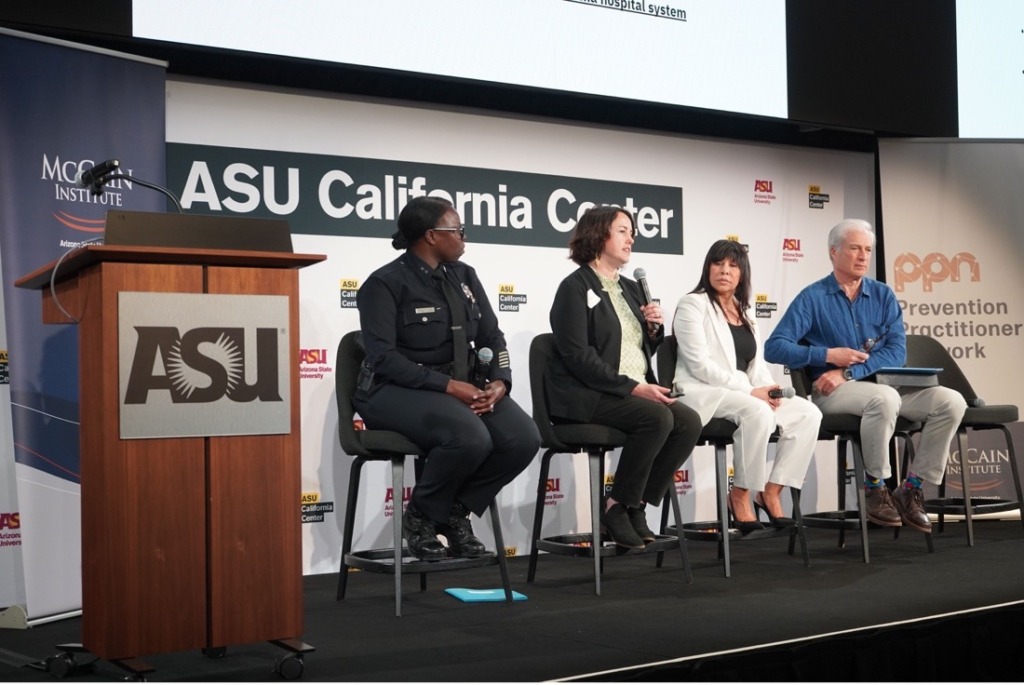
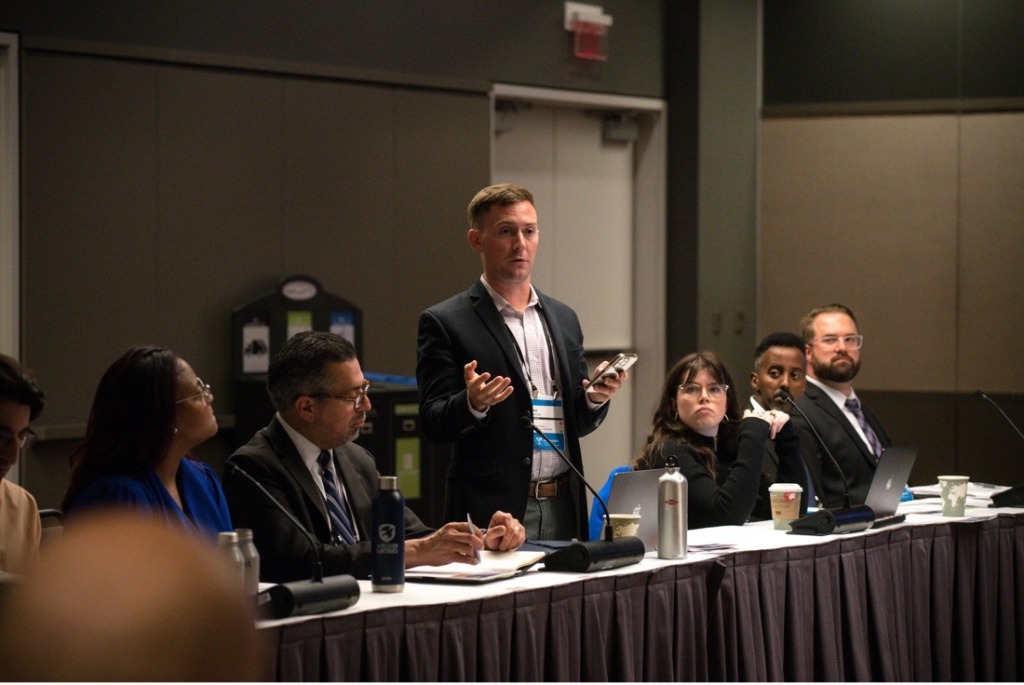
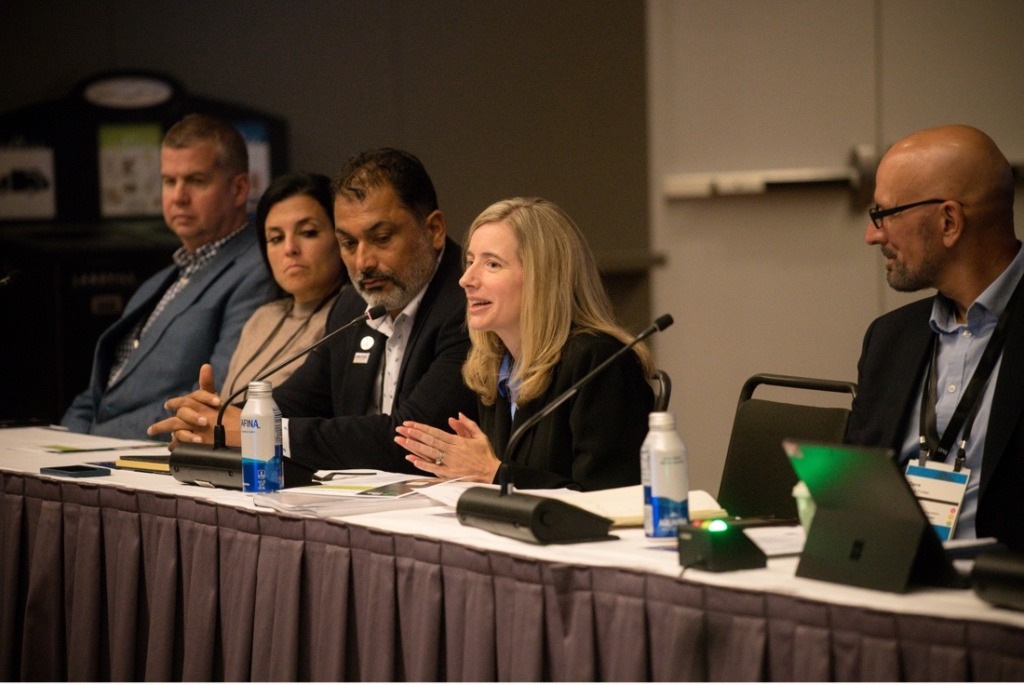
Since the United We Stand summit, the McCain Institute’s Prevention Practitioners Network has grown to over 1,225 interdisciplinary professionals committed to preventing hate-fueled violence. The Network hosted two in-person symposia and five workshops with over 1,600 views; reached 1,709,345 concerned adults with the SCREEN Hate campaign; recruited 186 organizations to join a national directory of resources for youth at risk of hate fueled-violence; and published a comprehensive framework for preventing targeted violence, a framework for philanthropic investment in prevention, and a prioritized research agenda.
In 2023, the McCain Institute’s brand visibility and communications activities broke new records. With the Sedona Forum alone, we reached nearly 3 million viewers on CBS News’ Face the Nation and millions of readers in POLITICO’s top newsletters. The McCain Institute garnered over 4,000 media mentions, and our website saw an 87% increase in traffic since the website was redesigned in October 2021. Our social media followings and engagement rates grew substantially across all platforms and had content go viral. Using a robust communications strategy, we are continuing the conversations of the ideas and causes Senator John McCain dedicated his life to serving.
At the core of our strategy is constructive engagement and convening of experts. By hosting forums and events that assemble subject-matter experts, we can better promote our values through solution-oriented and substantive conversations. We continue to create in-person and virtual content that makes these in-depth conversations more accessible.
In October 2023, the McCain Institute hosted a dinner featuring a timely discussion between 56th Secretary of State Dr. Henry Kissinger and Chair of the Special Competitive Studies Project, Co-Founder of the Schmidt Futures, and former Google CEO Dr. Eric Schmidt on the future of AI and the role that government can play in fostering innovation and keeping this technology out of the hands of bad actors.
Drs. Kissinger and Schmidt discussed their work around AI. Dr. Schmidt, from the technical side, outlined his hopes and fears regarding emerging technology, and Dr. Kissinger spoke about the challenges of controlling AI from an international level and contrasted it to his previous work on nuclear arms control.
It was a privilege to hear from these two leaders, both of whom spoke at length about the legacy of Senator McCain. The McCain Institute and the world will miss Dr. Kissinger’s insights and diplomacy.
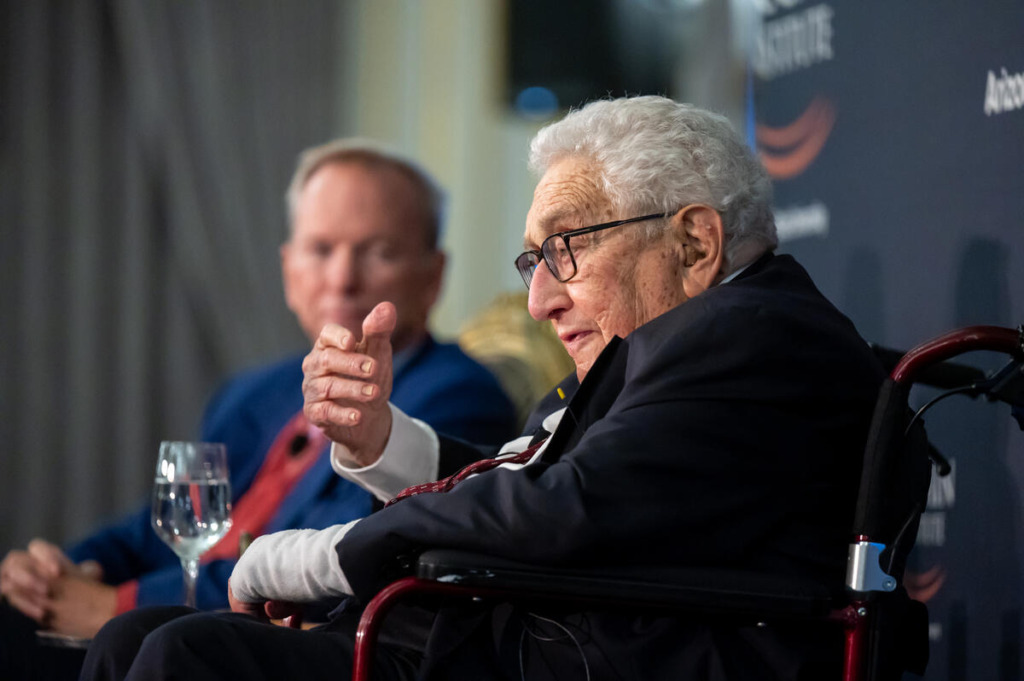
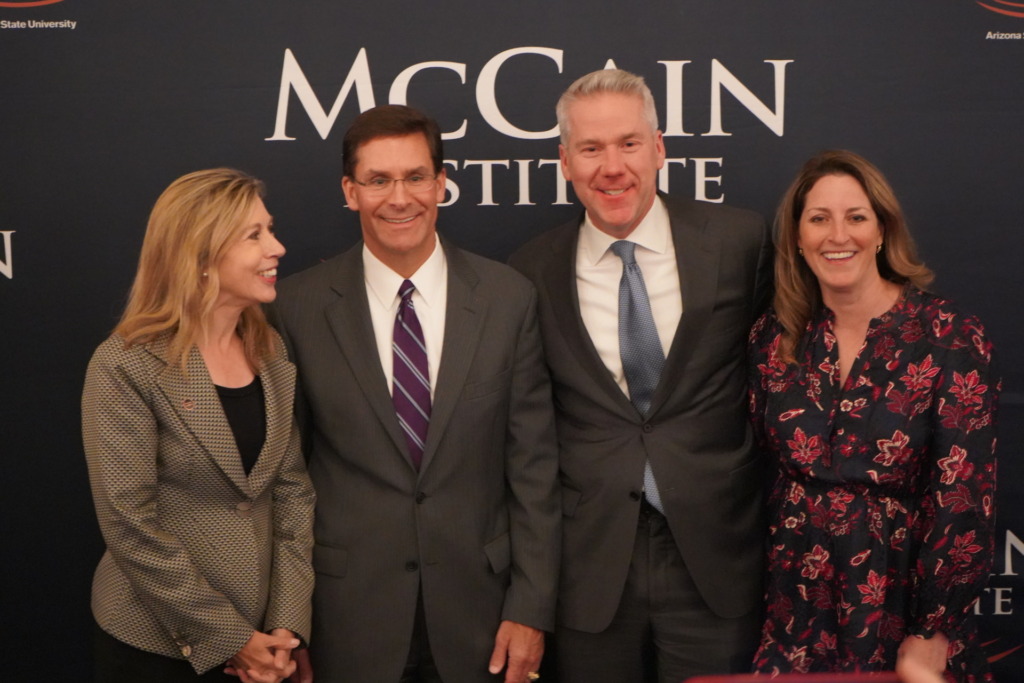
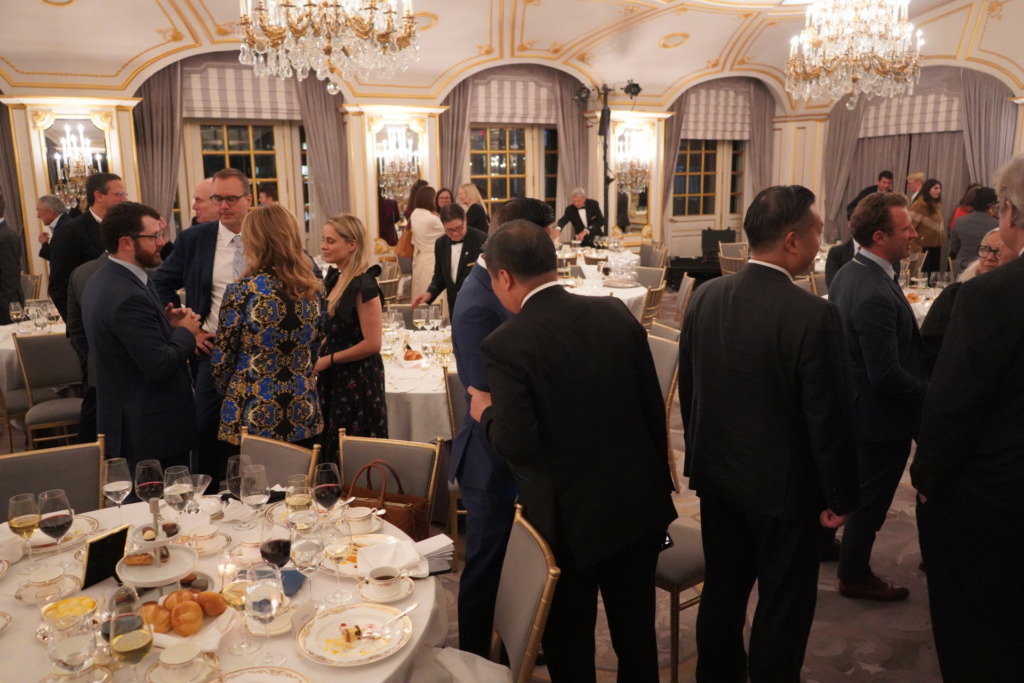
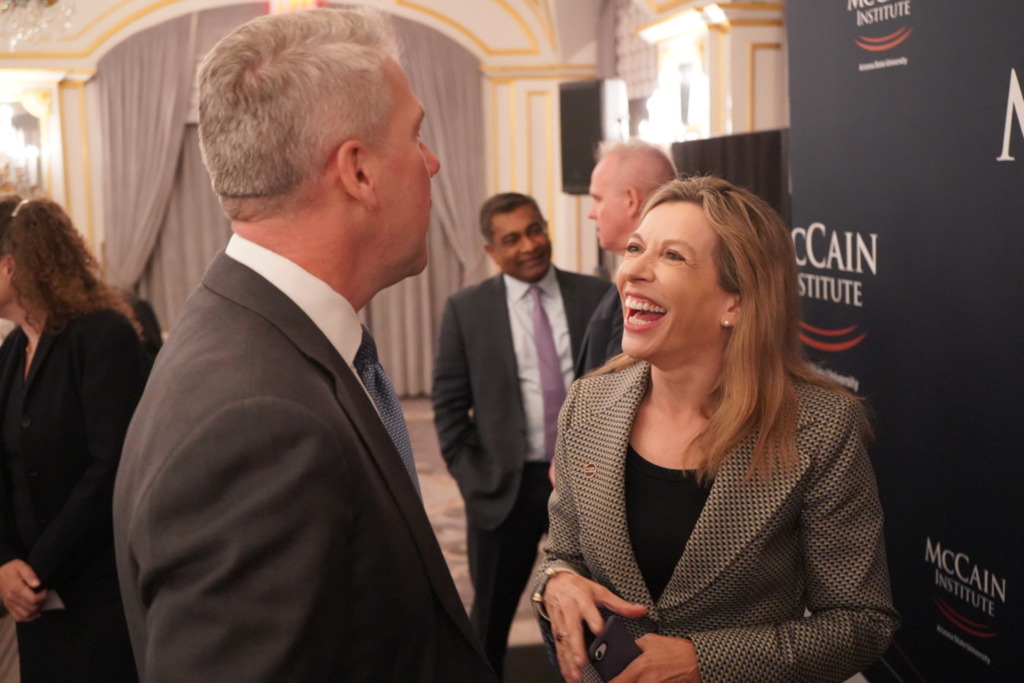
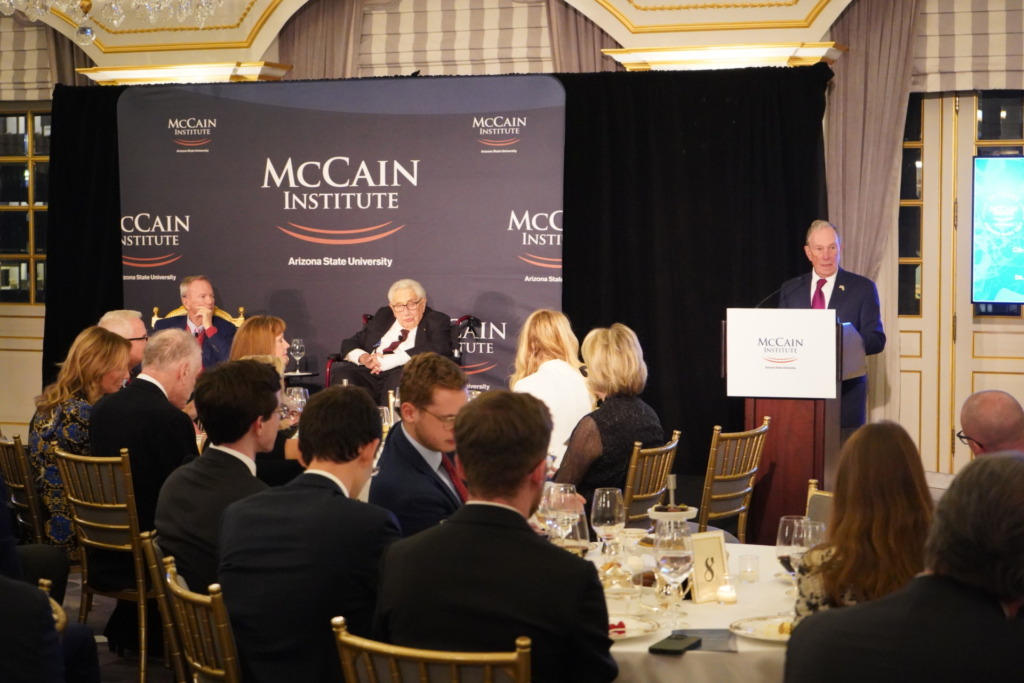
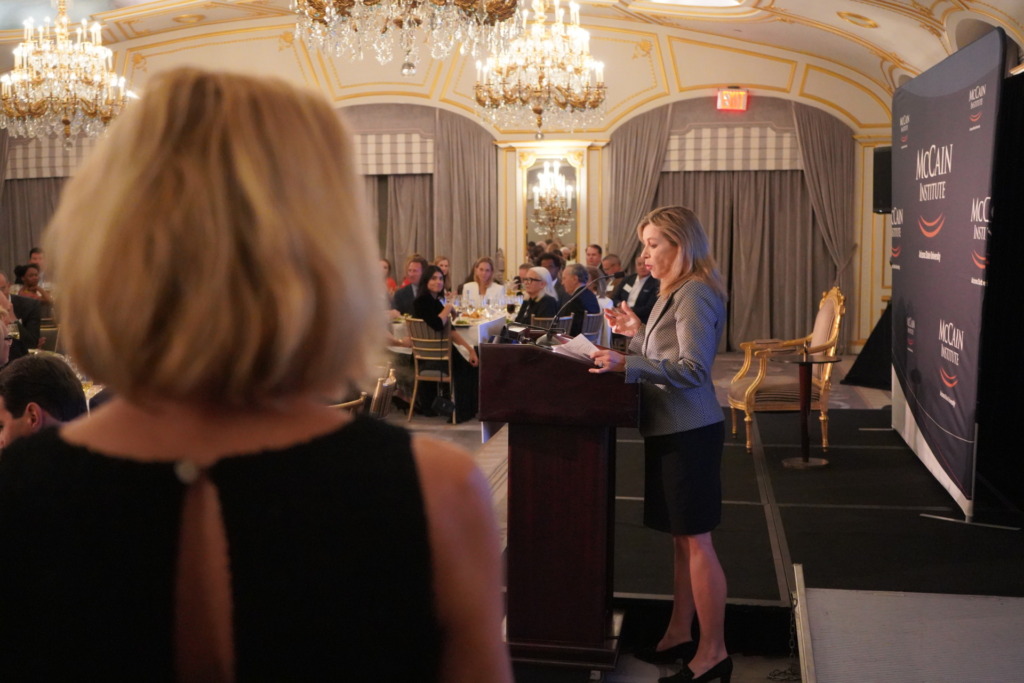
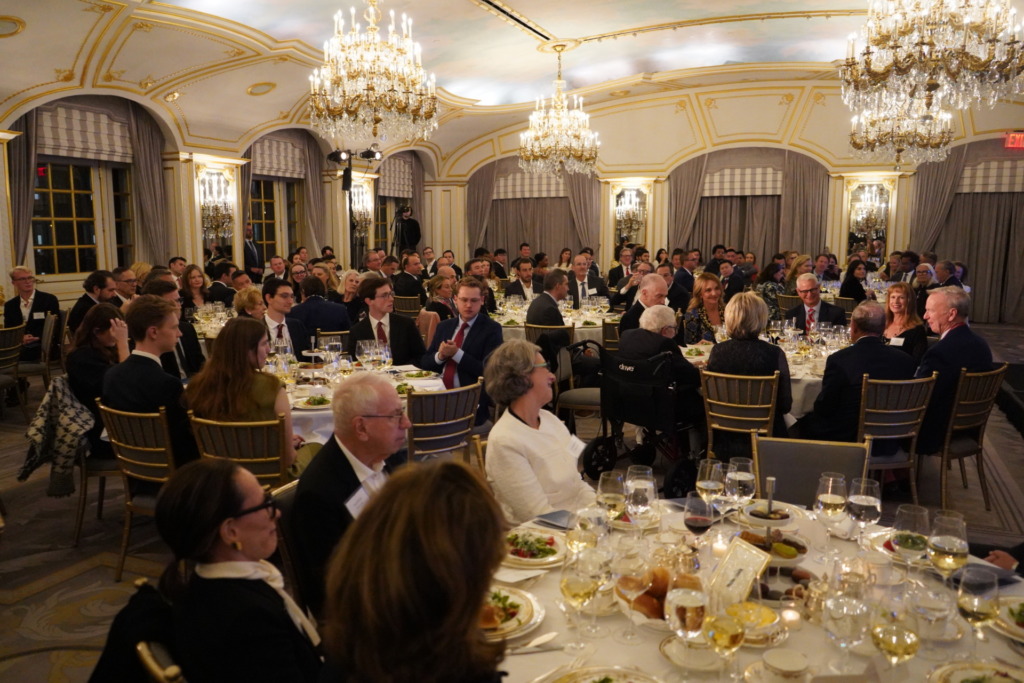
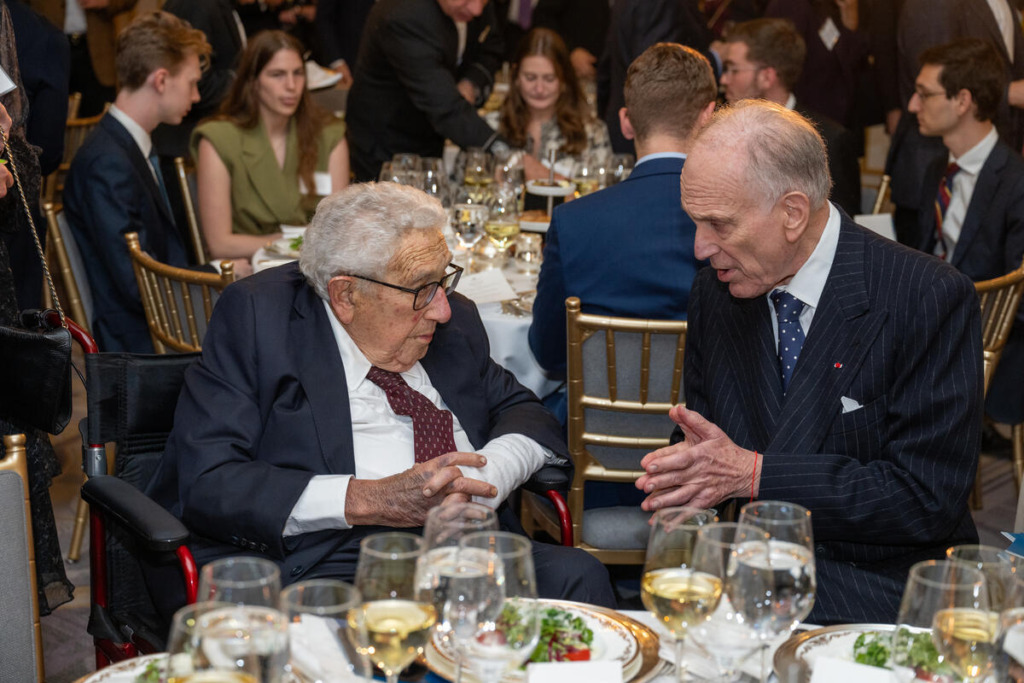
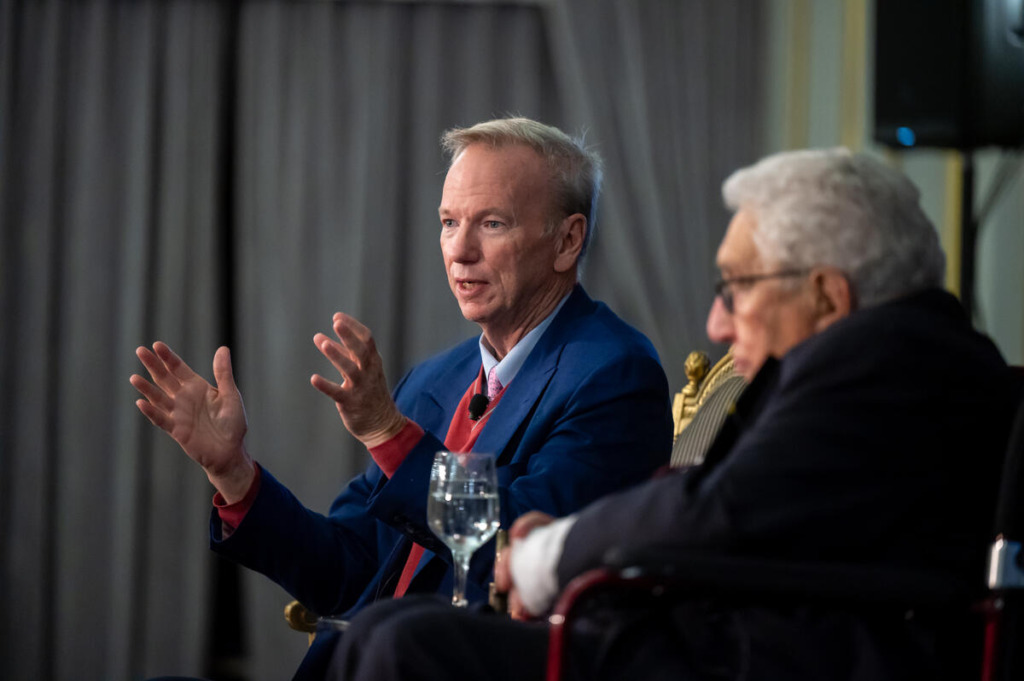
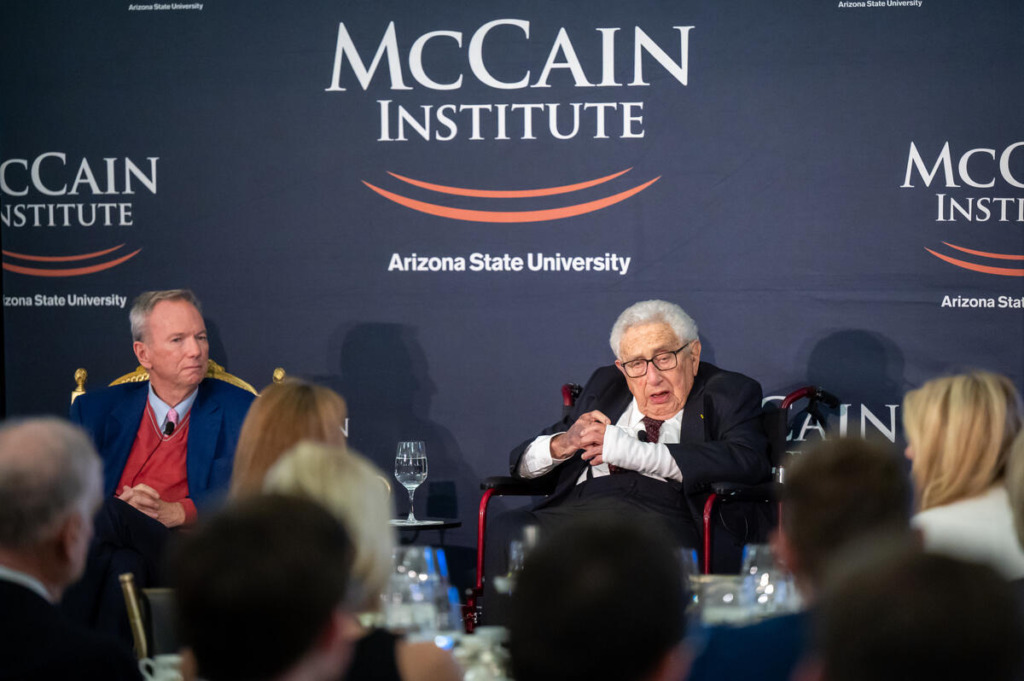
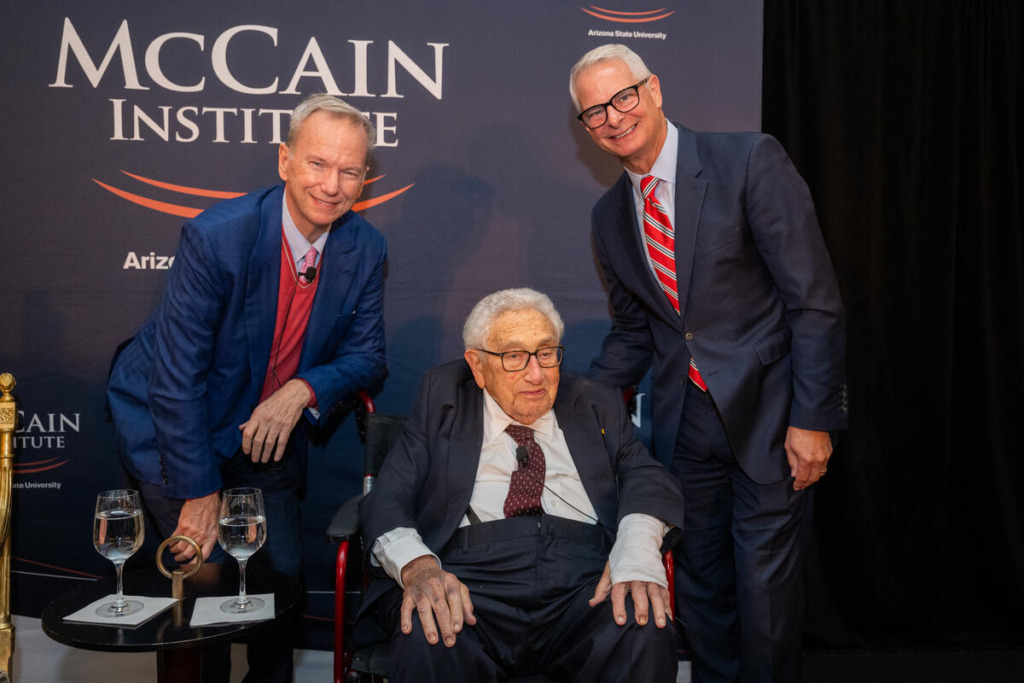
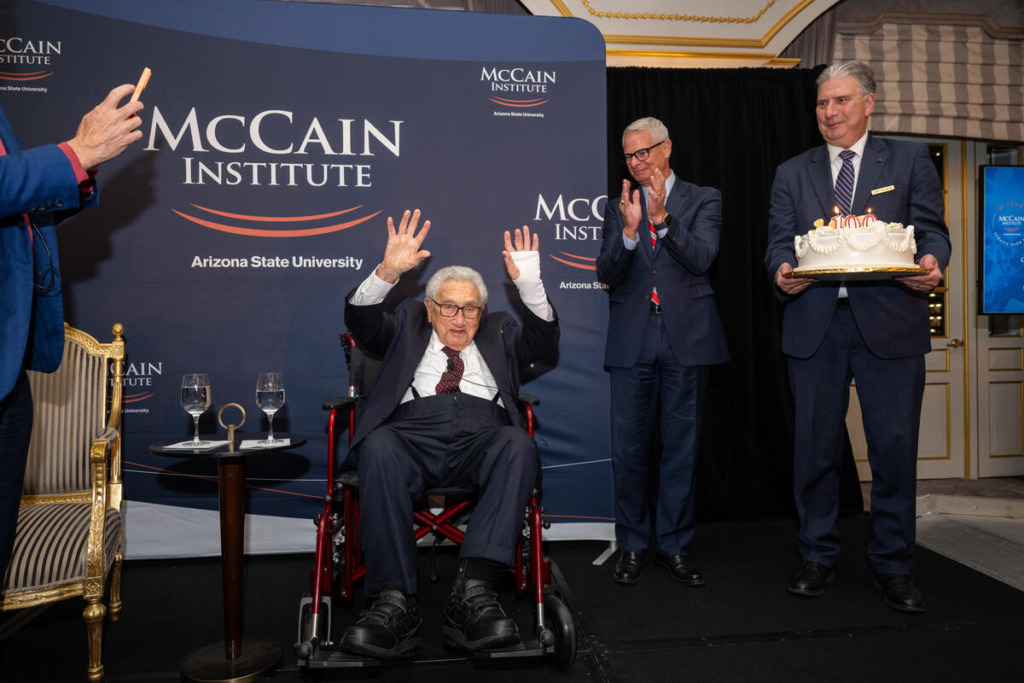
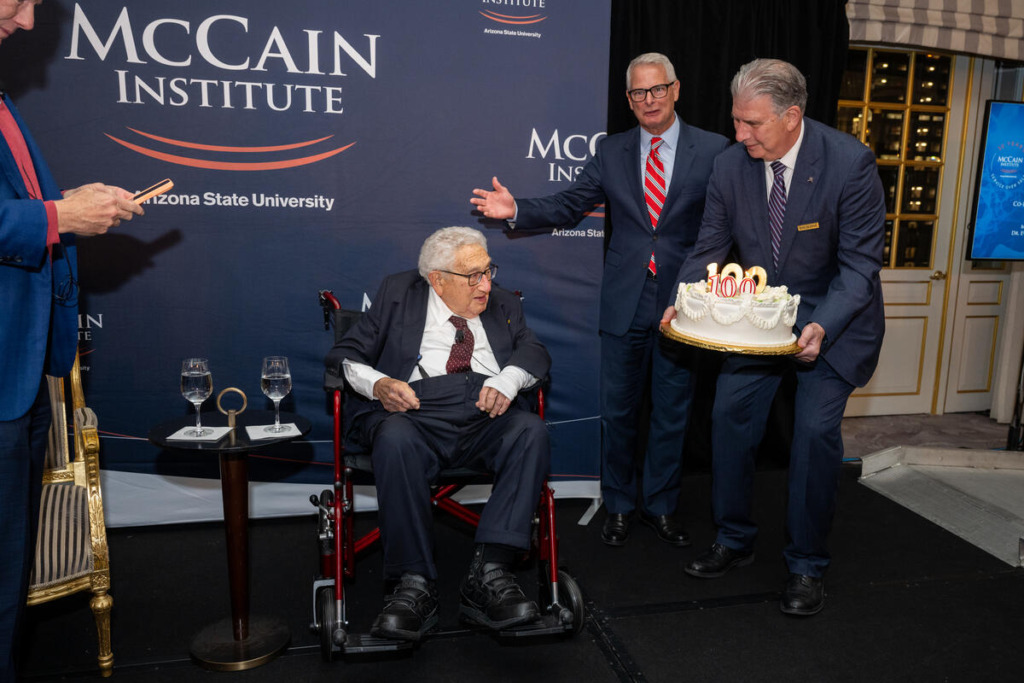
Through this “reverse book tour,” McCain Institute leaders interview authors of important newly released books on American politics, policy, and leadership with the intention to engage the American people in a dialogue that affirms the importance of character-driven leadership and America’s role in the international community. Previous participants have included the late former U.S. Secretary of State Madeleine Albright, former U.S. Secretary of Defense Dr. Mark Esper, and World Food Programme Executive Director Cindy McCain.
Former U.S. Ambassador to Ukraine Marie Yovanovitch joined McCain Institute Executive Director Dr. Evelyn Farkas. The two Ukraine experts discussed Russia, Ukraine, and what victory means for either side, as well as Amb. Yovanovitch’s tenure as the U.S. ambassador to Ukraine.
CNN Anchor and Chief Washington Correspondent Jake Tapper discussed his latest fiction book, “All the Demons Are Here,” with Executive Director of the McCain Institute Dr. Evelyn Farkas. The discussion between Dr. Farkas and Tapper focused on his book, his memories of Senator McCain, and the broader themes of democracy, disinformation, journalism, and war.
The discussion between CBS News Chief Washington Correspondent Major Garrett, national election expert David Becker, and McCain Institute Executive Director Dr. Evelyn Farkas followed the third anniversary of the Jan. 6, 2021 attack on the U.S. Capitol and focused on what actually happened in the 2020 election. They discussed the lessons learned in 2020 and the misinformation designed to con and beguile Americans into chasing phantom allegations of election crimes.
Senior Vice President, William A. Schreyer Chair, Director of Project on Prosperity and Development at CSIS Daniel Runde and McCain Institute Executive Director Dr. Evelyn Farkas discussed Runde’s book, “The American Imperative: Reclaiming Global Leadership through Soft Power,” where he makes the case for building a new global consensus through vigorous internationalism and the judicious use of soft power.